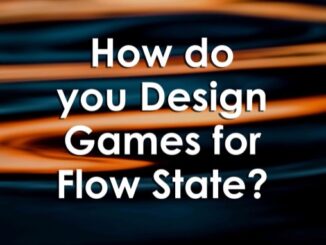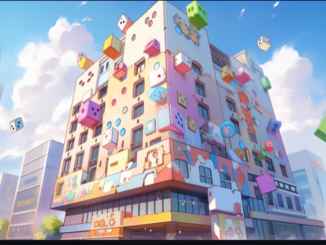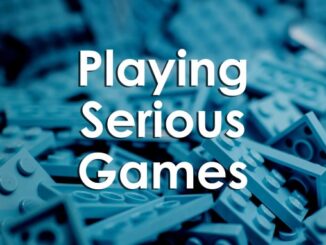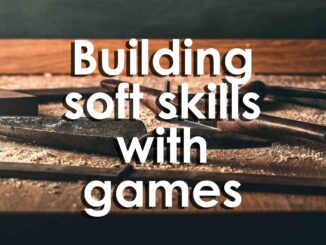
How do you Design Games for Flow State
Flow is a sought after experience in games – engaging and enthralling because players lose sense of time / space and are completely engrossed in the game world. […]

Flow is a sought after experience in games – engaging and enthralling because players lose sense of time / space and are completely engrossed in the game world. […]

A pile of random materials and two hours. “Go! Make a game!” For some, this is oxygen to the designer’s brain. For others, this type of design jam doesn’t work. […]

The library can provide an interesting experience to users by utilizing gamification, and gamification can make the library more fun and engaging. […]

Accessibility is often talked about. But, what does it mean and what does it entail when designing games for entertainment, learning, or personal development? […]

A megagame is an interesting combination of different game elements encountered in other places. They involve role-playing, simulation, and social interactions. […]

What unites role-play, playing a role, and acting in a play? They all require the self or the real person to stand aside, (to) become temporarily invisible. […]

Serious games can be incredible tools for teaching, learning, and education. They help players learn experientially though play by putting concepts into use […]

‘What is most important to consider in building the metaverse?” My answer is very simple. It’s the basic concept that, ‘The Metaverse is the game’. […]

Often designers leave rulebooks till the end of the design process. However writing clear, concise, and actionable rules is more challenging than you may think. […]

Games are capable of helping students learn any number of different skills more intuitively than they would from traditional classroom instruction. […]

currently, games have little to gain from gamification. In most cases, it isn’t necessary for game designers and developers to get interested in gamification. […]

Can anything be a game? I think the answer is probably ‘Yes’, and I want to try out the idea that ‘real-life’, e.g. work, can be deliberately designed gamefully […]

In 1986 Honey & Mumford put forward the idea of four different Learning Styles – Activist, Reflector, Theorist & Pragmatist, and described how they each behave. […]

Motivation is a important research area, in many social science fields including psychology.The ‘how-to’ of creating immersion, has to be carefully considered. […]

The core loop is the primary game system or mechanic which defines your game – the element of the game that players remember most or engage with most often. […]
Ludogogy 2025